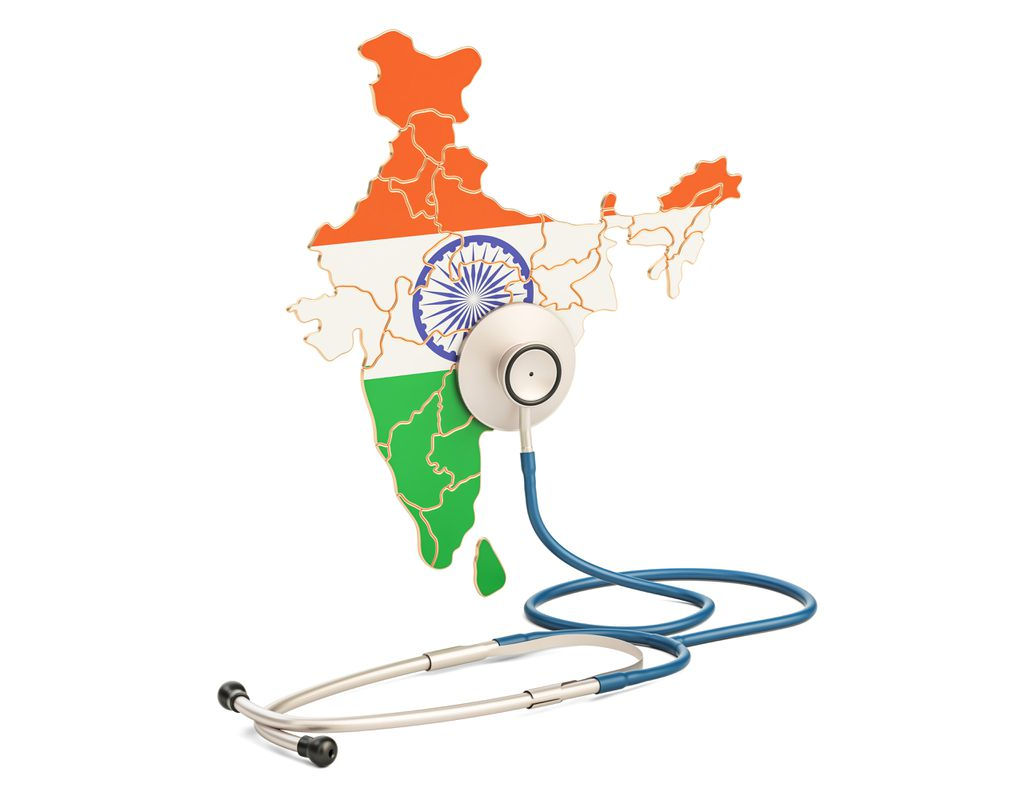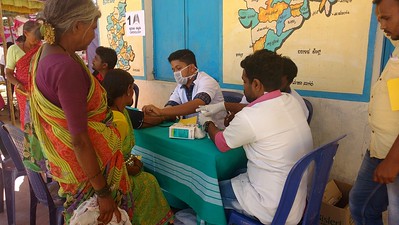By Tanya Mittal

The ongoing coronavirus pandemic has changed our lives by a huge margin. Technology and the tech industry have come to our aid and helped us in surviving this crisis. Our daily activities have gone online- from having virtual classes to ordering food and grocery products, apps have kept us connected. These uncertain times can be put into perspective if we try and use technology to our advantage. It prepares us for the future and it especially prepares us to change policies in order to adjust to this new way of life. The sector that requires the most attention from domestic governments right now is health. We have certainly learnt this the hard way that the health of living beings on the planet is connected. The Covid-19 outbreak reminds us of a basic fact that human, animal, plant and environmental health and well-being are all intrinsically connected and are profoundly influenced by human activities. It is rightly said ”Self care is a divine responsibility”. Each person has to take the onus to contribute not only to one’s own well-being but also to others by staying healthy.
So why should we reduce ourselves to a situation where we constantly look towards the government for a solution? Why can we not be citizen warriors and bring some change sitting at home? We need to think outside the box and become active in citizen governance, especially right now!
Aadhar card was once only a dream, until a group of people outside the governemnt made it happen. India’s national biometric ID is today ubiquitous with 90 percent of people possessing it. Official work cannot be done unless you have either of the following cards- Aadhar, PAN , passport or ration card. These are documentations that exist and bind us across the length and breadth of this country.
In this regard, the National Digital Health Mission (NDHM) launched by the government aims to revolutionise the country’s healthcare sector and equip citizens for situations like the current pandemic in the future. Under the NDHM, the government has unveiled a unique digital ID with a promise to connect stakeholders like doctors, hospitals and other healthcare providers with the citizens. The minute a child is born in the country, his or her health will be metered and recorded in the form of a Health card containing all relevant information about his/her medical conditions and treatments, diagnostic tests, discharge summaries etc. This digital Health card would be applicable across all hospitals, diagnostic laboratories, and pharmacies. It will be as important as the Aadhar card.

This complete technology-dependent initiative certainly has the potential of being a game-changer in the healthcare sector but is also expected to face hurdles in rural India with unequal access to technology, poor internet connection and no digital health resources.
The sad reality is that NDHM still does not recognize ‘Health’ as a justiciable right and therefore it is a long road ahead. When one thinks of this pandemic and how it challenges people with its comorbidities, it strikes us that even after 74 years of independence we still have the challenge of health and paucity of hospitals. It’s scary how an entire medical system in our developing nation like many others cannot face the onslaught of a pandemic of this nature. Health care needs to transcend barriers and move outside basic discharge slips in hospitals to a more digitised way.
Smart health cards will not be a panacea for all medical illnesses. However, these will definitely have the entire country’s medical record and data. This way we can preempt certain permutations and combinations to rule out any uncertain viruses in the future. This card will support the mobility of today’s patients, providing a digital means through which patients can receive treatment and doctors can upload sensitive patient information. Smart card technology will help reduce the burden of record management and paperwork. A dedicated team of health workers will be needed who prepare a contingency plan or a roadmap with what the world has already witnessed, in terms of diseases and virus outbreaks. The Ministry of health can create a new department to house a dedicated team with the mandate to build the NHIN ecosystem. The intellectual minds in our country along with students would need to be roped in for such a large scale project’s success.
This is primarily because we shouldn’t be caught off guard in the future. One small virus cannot bring the entire humanity down. Therefore we need better technology to safeguard and equip our populations. At the same time creating and maintaining electronic medical data sets the stage for making critical information available for outsiders and other online hazards. Even though our country is not a superpower, India has definitely taken the lead in setting an example for the world with its community practices and efforts in healthcare. Community value , Connectedness, Service before self are values that hold us in good stead worldwide. Nations in the world are increasingly adopting digital contact- tracing techniques, while India stands insulated with its self-built application, Aarogya Setu. It is a unique initiative which is already helping leaps and bounds for a mammoth population like ours. ‘Contact and trace technique’ is carried out manually and this was partly successful at the start of the Ebola outbreak for example. However, manual tracing will become unfeasible as Covid-19 cases continue to balloon in India and therefore India’s premier health application needs to be revised as complexities of this virus increase.

According to Nandan Nilekani, the face behind the Aadhar, in his book ‘Rebooting India: Realizing a billion Aspirations’, the way Aadhar-linked bank accounts are used to disburse government payments, the Aadhar-linked NHIN (National Health Information Network) can be used by the government for health-related payments to Individuals, such as benefits through the Janani Suraksha Yojana or incentives for ASHA (Accredited Social Health Activist) workers.
Along with this, the government will have to train and equip healthcare workers in digital technology and ensure their effective deployment across the nation. Big capital investments in equipment and devices shall be required based on a PPP (public-private partnership) model. In addition to this, with India still lacking stringent laws on data protection, the mission is expected to trigger privacy concerns in the days to come. This ambitious programme has already commenced in a pilot phase in Union Territories. It is hard to accurately assess what the results shall reap right now but these will remain as targets for a future nationwide implementation. With least resources exploited and cost effective methods, India can definitely taste success if all of us start thinking innovatively in these directions. So let’s imbibe our fundamental duty mentioned under Article 51 A of the constitution- (It shall be the duty of every citizen of India) To develop scientific temper, humanism and the spirit of inquiry and reform. Let’s try and bring a modicum of change in the world, starting today.
Tanya Mittal, a writer at Itisaras is currently pursuing her undergraduate degree in History from Lady Shri Ram College, University of Delhi. Belonging to an armed forces family, she has had an opportunity to appreciate the vibrancy that India offers. She is an avid reader and wishes to pursue a career in International Relations.

